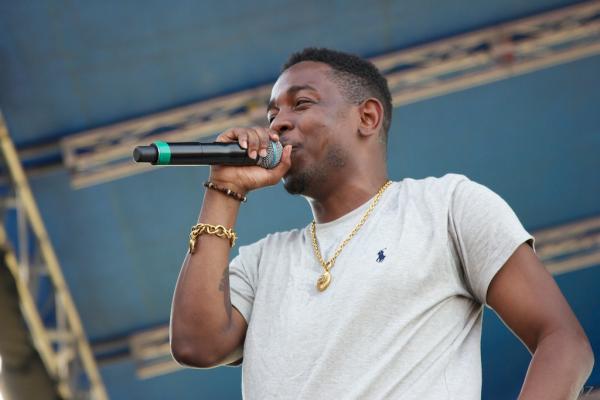Ebony recently released unpublished outtakes from an interview with Kendrick Lamar, who was featured in their June cover issue. At the 57th Annual Grammy Awards in February the 27-year-old won Best Rap Performance and Best Rap Song for his single "i."
In his interview with Ebony, Lamar spoke candidly about his spiritual life and the political resemblance his music has to "1970s concept albums like Sly Stone's There's A Riot Going On." After discussing how his mother shaped his faith in God, Lamar also tried to explain the "something that you can only feel in the air" that characterizes this cultural moment for black Americans.
On the spiritual foundations of his music:
I was baptized recently actually. I was baptized not more than like three or four years ago. I was saved. I got saved in the [Food 4 Less] parking lot, like I said on good kid, m.A.A.d city. But we was always taught to have faith. We was brought up like that. Whether we was inside a church or not, my mother always kept that faith inside of us. The more I started going through my own things in life, my faith got put to the test, and I had to believe that God is real in my heart, my lord and savior Jesus Christ, and I can’t run from that. I’ll always put that in my music or it just wouldn’t be right. People can take it or leave it, I really don’t care, because it’s for me to put it on records. And I will continue to put more of a spiritual nature in my music.
On Marvin Gaye and the contemporary black experience:
The times that we are in, it’s something that you can only feel in the air. You don’t even have to talk about it. You don’t need the news or the Internet to watch it. You can walk outside and just feel it. And these are the same times that I believe Marvin Gaye and them felt, just in a whole other generational perspective. He’s been on that wave. And for me to know he’s been on that wave, Marvin Gaye, and to carry on that type of legacy is only right. I am from Compton. I am from the inner city, the ghetto. And if I can use my platform to carry on a legacy and talk about something that’s real, I have to do that, period.
Read more at EBONY.
Got something to say about what you're reading? We value your feedback!
